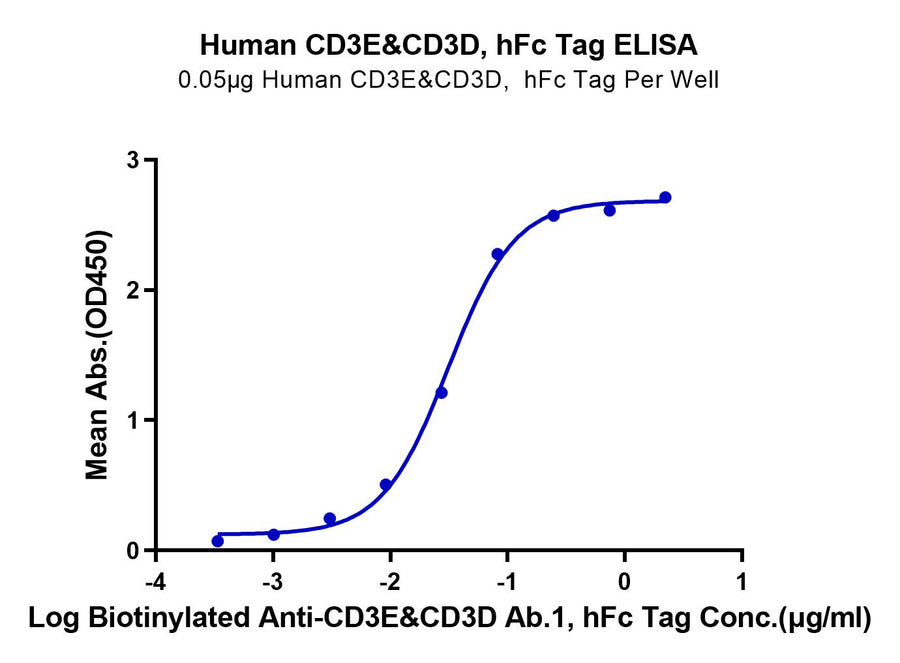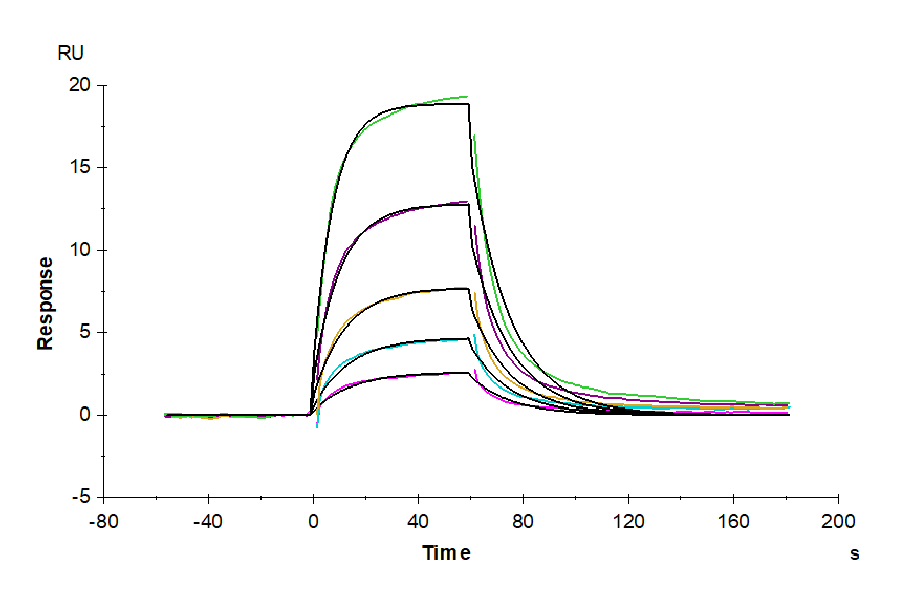Monkeypox virus E8L Protein (E8L-VE18L) Summary
Product Description |
Recombinant Monkeypox virus E8L Protein is expressed from E.coli with His tag at the N-Terminus.It contains Met1-Thr275. |
Product Background |
E8L is an important protein that mediates the invasion of monkeypox virus into host cells. In the process of invading and completing replication, E8L acts as a surface-binding protein of mature virion and can bind to chondroitin sulfate on the cell surface, so that the virus can attach to target cells. |
Product Category |
Recombinant Protein / Antibody discovery / Antibody discovery | Others |
Monkeypox virus E8L Protein (E8L-VE18L) Specifications/Details
Protein |
E8L |
Synonyms |
Cell surface-binding protein; Carbonic anhydrase homolog |
Accession |
|
Species |
Monkeypox virus |
Biotinylated |
no |
Amino Acid Range |
Met1-Thr275 |
Molecular Weight |
The protein has a predicted MW of 32.92 kDa. The protein migrates to 50-60 kDa based on Bis-Tris PAGE result. |
Product Tag |
N-His |
Expression System |
E.coli |
Purity |
> 95% as determined by Bis-Tris PAGE |
Endotoxin |
Less than 1 EU per ug by the LAL method. |
Form |
Lyophilized |
Shipping |
Shipped at ambient temperature. |
Formulation |
Lyophilized from 0.22um filtered solution in PBS, 200mM L-arginine (pH 7.4). Normally 8% trehalose is added as protectant before lyophilization. |
Reconstitution |
Dissolve the lyophilized protein in distilled water. It is recommended to resuspend at 0.5 mg/mL if the lyophilized powder is 100 ug or less, at 1mg/ml for 500ug or 1mg lyophilized powder. Do not mix by vortex or vigorous shaking. |
Stability And Storage |
-20 to -80°C for 12 months as supplied from date of receipt.;-80°C for 3 months after reconstitution.;Recommend to aliquot the protein into smaller quantities for optimal storage. Please minimize freeze-thaw cycles. |
Related Products
Have more questions?
Check out our Frequently Asked Questions page for more details about product specifications, ordering, and shipments.
Contact Us
More from Antibody Drug Discovery Proteins
Recently viewed





















